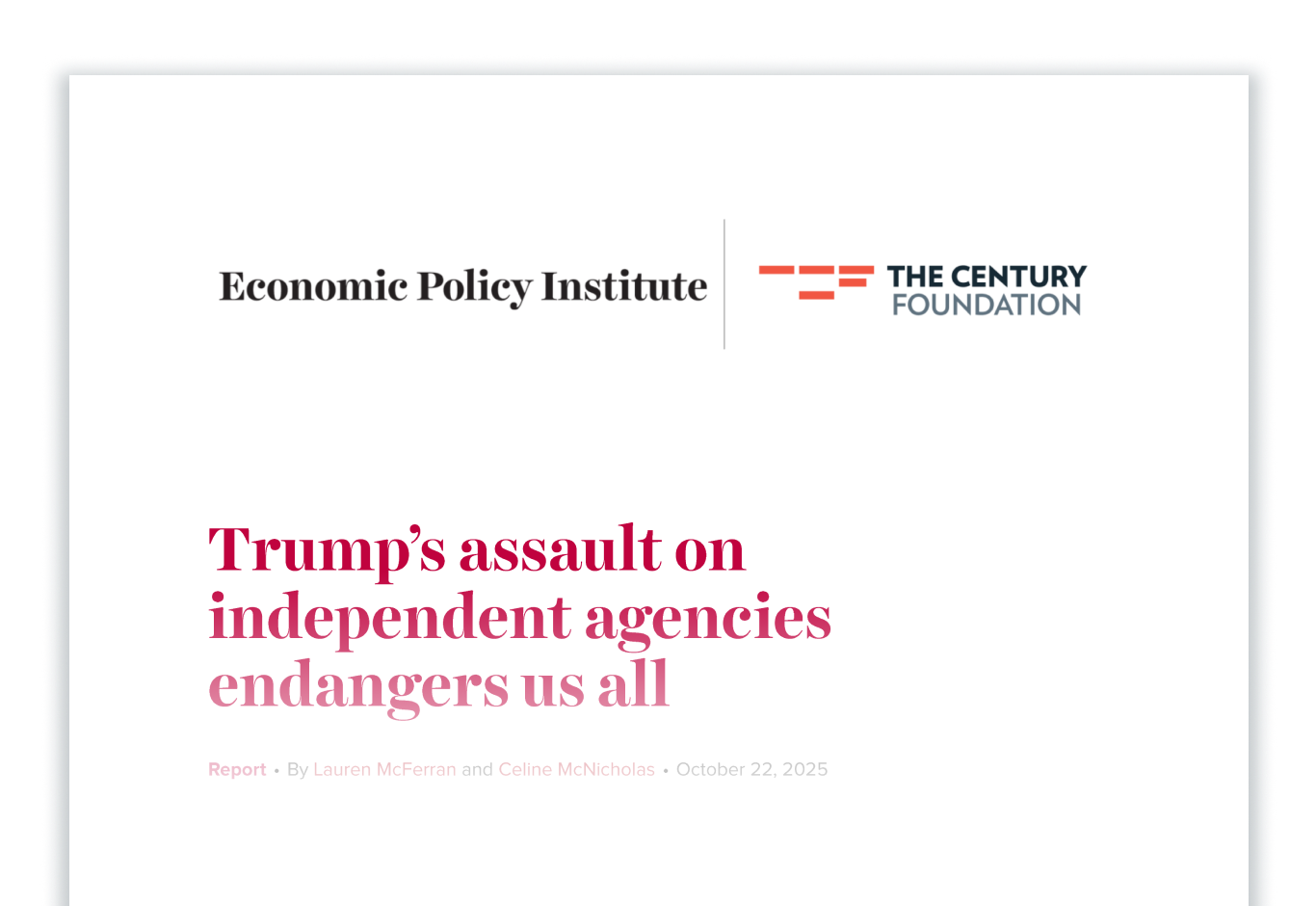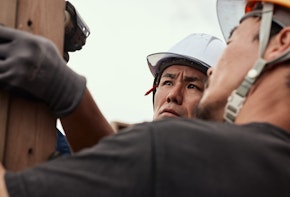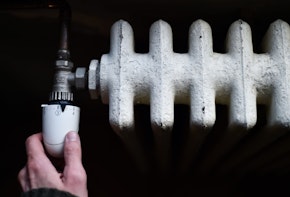Executive Summary
Independent agencies were carefully designed by Congress to ensure that those charged with safeguarding critically important public interests—like workers’ rights, product safety, or household financial security—would act to serve the public good, not the president’s political needs. However, since taking office, the Trump administration has been on a crusade to attack and undermine the effectiveness of independent agencies. Trump has taken several unprecedented and illegal steps to politicize these agencies, including:
- Summarily firing dozens of independent agency leaders—who, by law, can only be removed from office for misconduct—based on political disagreements and then either stacking boards with Trump loyalists or letting seats sit vacant, depriving agencies of the ability to function.
- Implementing new controls over the day-to-day operations of agencies, including giving the White House control over which agency projects to fund or defund, and requiring every agency leader to employ a “White House liaison” in their office.
- For the first time, requiring independent agencies to submit draft regulations to the Office of Management and Budget for White House review prior to publication and to coordinate with the White House to review all their existing regulations, giving Trump the power to change or veto independent agencies’ expert-led standards.
These actions will have a sweeping impact and will directly undermine the safety and well-being of workers, consumers, and the public. While all government agencies need to have some ability to make decisions based on policy expertise rather than political considerations, Congress deliberately chose to structure certain agencies to be more independent for good reason: Their decisions particularly benefit from expert analysis and collaborative decision-making rooted in a variety of perspectives. These watchdog agencies make decisions that impact our country at all levels, from deciding which toys are safe for our kids to determining what interest rate levels will help the economy thrive. Nobody wants unqualified politicians weighing in to make these decisions based on which bank or toy company gave them the most political contributions.
Trump’s assault on independent thinking within the government deserves more attention and opposition from Congress, both to defend its prerogative to create public watchdogs within the executive branch and to protect the people these important agencies were designed to serve.
Introduction
The first six months of the second Trump administration have been characterized by a haphazard yet comprehensive evisceration of basic government institutions. From the mass firing of federal workers to the effective shuttering of entire agencies, Trump and his billionaire allies have pillaged public-serving institutions while giving themselves cover by claiming to promote “efficiency.”
Some of the most critical targets of these attacks have been independent agencies. Unlike executive agencies, which are overseen by the White House and accountable to the president through a cabinet secretary that is part of the president’s administration, independent agencies are established by Congress to serve a specific public purpose. While housed within the executive branch, they are not subject to day-to-day control by the White House. These agencies are supposed to perform essential watchdog functions—protecting individuals like workers, consumers, and retirees from being abused by better-resourced and more powerful corporate actors. The United States Government Manual lists over 55 such permanent independent agencies in the federal government, including well-known entities like the Federal Reserve Board and the Equal Employment Opportunity Commission, as well as lesser-known agencies like the Merit Systems Protection Board.
These agencies have been among the earliest targets of Trump’s governmental dismantling. First, he has taken the historically unprecedented (and clearly unlawful) step of firing dozens of board members and commissioners before the expiration of their terms in office—not for any allegations of misconduct, but solely due to political disagreement or assertions of presidential prerogative. He has also issued multiple executive orders asserting new levers of control over independent agencies—giving the White House unprecedented control over these agencies’ regulations, enforcement decisions, and day-to-day operations. More recently, President Trump has gone as far as publicly attacking and then firing Lisa Cook, a member of the Federal Reserve Board of Governors, a move that could have long-lasting economic implications. The Federal Reserve is perhaps the most well-known independent agency among the public; its mandates include promoting full employment, stable prices, and moderate long-term interest rates, among others.
Many of these changes have largely flown under the public radar screen, but the implications for the U.S. public are significant. While many government agencies have enforcement authority that can serve as a check on corporate power, independent agencies are unique in their ability to hold powerful actors accountable, regardless of political influence. The structure of independent agencies also promotes stability and prioritizes expert decision-making on topics of critical national importance. From the Federal Reserve’s decisions about interest rates to the Consumer Product Safety Commission’s evaluation of car seat safety, the work of independent agencies impacts working families’ lives every day. The public deserves to know that these agencies are working as Congress intended: to serve the people of the United States. The Trump administration’s actions are threatening the effectiveness of these agencies and putting people’s lives and well-being at risk.
This report will explore the structures and protections that characterize independent agencies and the multifaceted attacks that these agencies have experienced in recent months. We will then examine several case studies of key independent agencies that protect workers and consumers: the National Labor Relations Board, the Equal Employment Opportunity Commission, the Consumer Product Safety Commission, and the National Credit Union Administration. We will explore why and how Congress designed them to be independent, the important role their independence has played in protecting the U.S. public, and how their functions will be compromised if brought under the direct control of the Trump White House.
As these case studies will show, the devastation of independent agencies by the Trump administration creates tremendous potential for abuses of power that could let wealthy corporations pad their profits at the expense of ordinary people’s lives and livelihoods. The systematic attack on independent agencies deserves more attention and opposition from Congress, both to defend its prerogative to create public watchdogs within the executive branch and to protect the people these important agencies were designed to serve.











